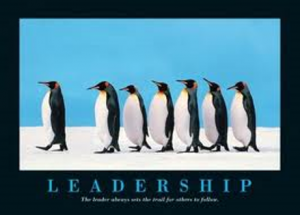OBADIAH MAILAFIA: STEADYING THE SHIP IN STORMY WATERS (IV) – 7 ESSENTIAL QUALITIES OF TRANSFORMATIONAL LEADERSHIP

FEATURED IN JARUSHUB THOUGHT LEADERSHIP SERIES
By
Dr. Obadiah Mailafia
Chief of Staff of the Organisation of African, Caribbean & Pacific (ACP) of States, Brussels, Belgium
Former Deputy Governor, Central Bank of Nigeria
Being Text of a Lecture Delivered at the 11th Session of the National Economics Students Association (NESA) Conference at Obafemi Awolowo University, Ile-Ife, Nigeria
(12–13 March, 2014)
PART 2
PART 3
6. Preparing to Lead in the 21st Century
I am of the opinion that leadership and entrepreneurship go together. A successful entrepreneur is a leader who has made a success in running a business. Great entrepreneurs such as Aliko Dangote, Folorunsho Alakija, Femi Otedola and Mike Adenuga are also leaders of exceptional ability and vision.
There have been as many definitions of leadership as there are theorists of leadership. John Quincy Adams, one of Founding Fathers of the American Republic, conceptualises leadership in terms of the ability to inspire people: “If your actions inspire others to dream more, learn more, and do more and become more, you are a leader”.
There has been a long-standing debate among scholars of leadership as to whether leaders and entrepreneurs are born or made. Some would argue that people like Warren Buffett, Bill Gates and Aliko Dangote are wired differently from the rest of us mortals. There are others, however, who insist that leadership and entrepreneurship can be learned; that it is a learning process and that individuals can be coached and mentored on the art and skills of effective leadership and entrepreneurship.
Harvard Business School professor Warren Bennis, in his famous book, On Becoming a Leader, starts from the presupposition that leaders are made, not born. He argues that the process of becoming a leader requires education, training and character formation. Bennis regards self-knowledge to be key to the process of becoming a leader. Leaders, according to him, “…know who they are, what their strengths and weaknesses are…They also know what they want, why they want it, and how to communicate what they want to others, in order to gain their cooperation and support”.
A major distinction has been drawn between two main types of leadership, the first, “transactional”, and the second, “transformational”. Transactional leaders tend to use ‘carrot and stick’ approaches to achieve the results that they want. They engage with their followers using incentives and threats. President Theodore Roosevelt, one of the greatest leaders of the American republic, reportedly loved the African wisdom saying which admonishes the leader: “Speak softly, and carry a big stick; you will go far”.
Transformational leaders, on the other hand, tend to appeal to higher ideals and values. They offer a purpose for their followers that transcends short-term goals while focusing on higher-order ideals. Transformational leaders aim to change human conditions while empowering their followers to aim for the highest and best. According to the medieval Jewish sage, Rabbi Hillel, ordinary leaders create good followers, while extraordinary leaders make leaders out of others. Transformational leaders bequeath a legacy of creative change while building and mentoring other leaders who will carry on their work.
I happen to be a believer in transformational leadership. It is my belief that our country – indeed, Africa – is in dire need of transformational leaders and entrepreneurs if we are to take our destined place among the leading nations of the twenty-first century.
Seven qualities, in my opinion, are essential to the successful exercise of transformational leadership.
The first is character. It has been said times without number that character maketh the man. Character is indeed destiny. Without a good character and a good name, a man or woman is not worth very much. Character entails adherence to virtue ethics and to the old and time-tested attributes of honesty, loyalty, humility, respect, loyalty, goodness and faith.
The German sociologist, Max Weber, famously underlined charisma as the foundational element for that personal quality that makes leaders stand out from the crowd. Weber himself acknowledged that charisma is better felt than defined. It has to do with that personal magnetism that makes others want to trust and do the bidding of the leader. However we understand charisma, it is obvious to me that a healthy life-style and good grooming can only add to your image as a leader.
Secondly, leaders possess vision. According to the ancient Hebrew sages, “without vision, the people perish”. Leaders are those who are able to see tomorrow; providing a clear vision that rallies the people together for great national undertakings.
A third element of successful leadership is passion. Leaders are deeply passionate people. They believe in the cause they espouse. The American civil rights leader, Martin Luther King Jr., was deeply passionate about the cause of emancipation of his people. He once noted that unless we can find something worth dying for, we haven’t begun to live.
Fourthly, leaders possess integrity. Because they believe in a cause that is greater than themselves, they are ready to make all the sacrifice necessary for the achievement of that goal. From Obafemi Awolowo to Nelson Mandela, the greatest leaders are incorruptible. They identify with their people in their struggle for a better life. The people, on their part, repose their trust in them, knowing that their trust will not be betrayed.
Fifthly, leaders are learners. They are extremely curious people. They are always on the quest for truth. Jesus Christ of Nazareth said, “Ye shall know the truth and the truth shall set you free”. If you desire to be a success in life, you must make books your unfailing companions. Leaders are people who are continually learning. They tend to be of an objective bent of mind. Whilst remaining faithful to personal principles, they are also ready to succumb to superior argument if logic and evidence are compelling enough.
Sixthly, leaders are men and women of courage. Sooner or later, every human being will come across one form of adversity or the other. It is therefore that we nurture the virtue of courage. As the great Nelson Mandela explains: “I learned that courage is not the absence of fear, but the triumph over it. The brave man is not he who does not feel afraid, but he who conquers fear”. The late Harvard psychoanalyst and organisational theorist, Abraham Zaleznik referred to ‘born again leaders’ as those leaders who have gone through the crucible of adversity and have emerged out of it the stronger and wiser.
Seventh, leaders have mastery over the context in which they operate. Being learners and being supremely curious people, they tend to master their environment. Their feet are always rooted firmly on the earth; and they are ever ready to roll up their sleeves. Leaders appreciate the dignity of labour. They are ‘organic intellectuals’ in the sense understood by the Italian revolutionary intellectual Antonio Gramsci. They not only learn from their environment; they apply those lessons to bettering the organisations and businesses that they lead.
Lastly, leadership entails the pursuit of excellence as a life-long objective and commitment. Excellence, according to the philosopher Aristotle, is a state of mind. Excellence is about continually improving yourself in all areas; in intellect, soul and body. Centuries of oppression and humiliation have broken the spirit and confidence of the African people. We have been to believe that we came into this world to be spectators and that we would forever remain on the margins of world history. As a counter to this pernicious teaching, Kwame Nkrumah long ago espoused the ideal of the African Personality. His vision was that we Africans must embrace excellence in all we do. Sloppiness or shoddiness must never be entertained. We must never settle for low quality because we are Africans. We must continually strive for the best and aim for the best. And we must always keep it mind that nothing but the best is good enough for Nigeria and for the New Africa of our dreams.
Continues tomorrow
Established in March 2013, JarusHub is a Nigerian information hub with focus on career and management. It is rated Nigeria's most authoritative destination for online career resources. It parades an array of Nigerian professionals who share their career experiences with a view to bridging career information gap and mentoring a generation to success. JarusHub has revolutionised career information and experience sharing in Africa. Whether you're a student, a recent graduate or an established professional, or even an executive, you will always find something to learn on JarusHub. All enquiries to jarushub@gmail.com or 0808 540 4500. Facebook: www.facebook.com/jarushub; Twitter: @jarushub or @mcjarus.
Path to Big 4: Stream 11
April 4, 20245 Best Useful Applications Of AI in Modern World
November 17, 2023
Let us have your say by leaving a comment belowCancel reply
Recommended For You
-
10 Tips to Navigate the Politics of Office Email
September 3, 2013 -
Msc Econs or ACCA?
September 10, 2013








